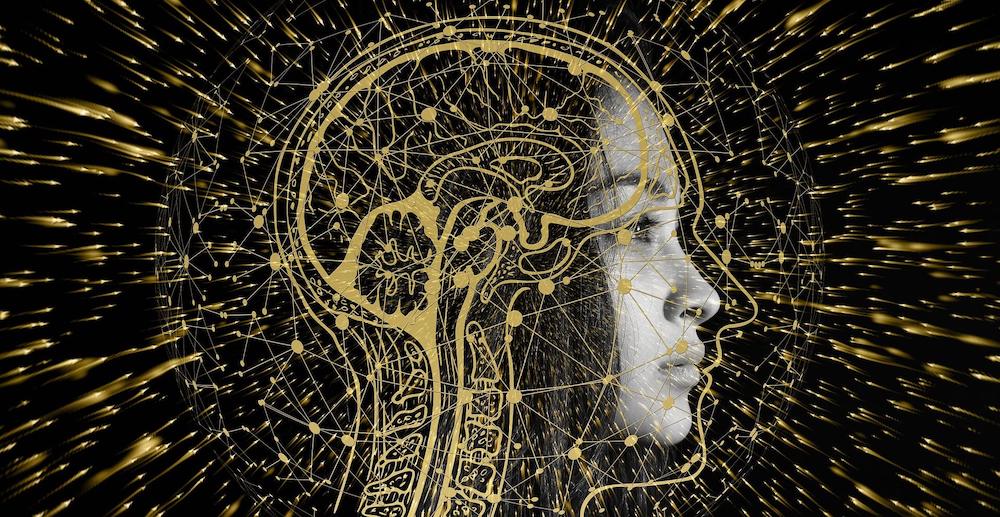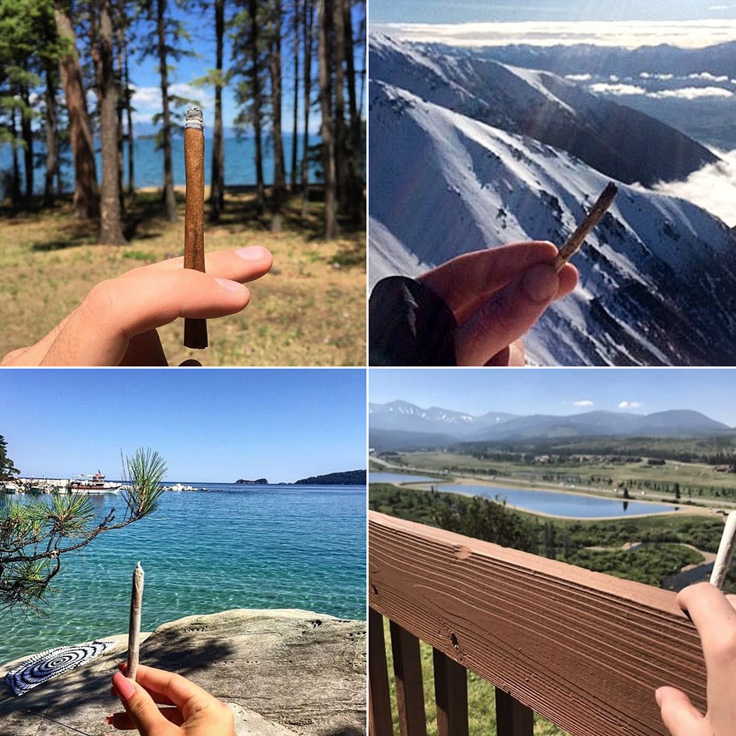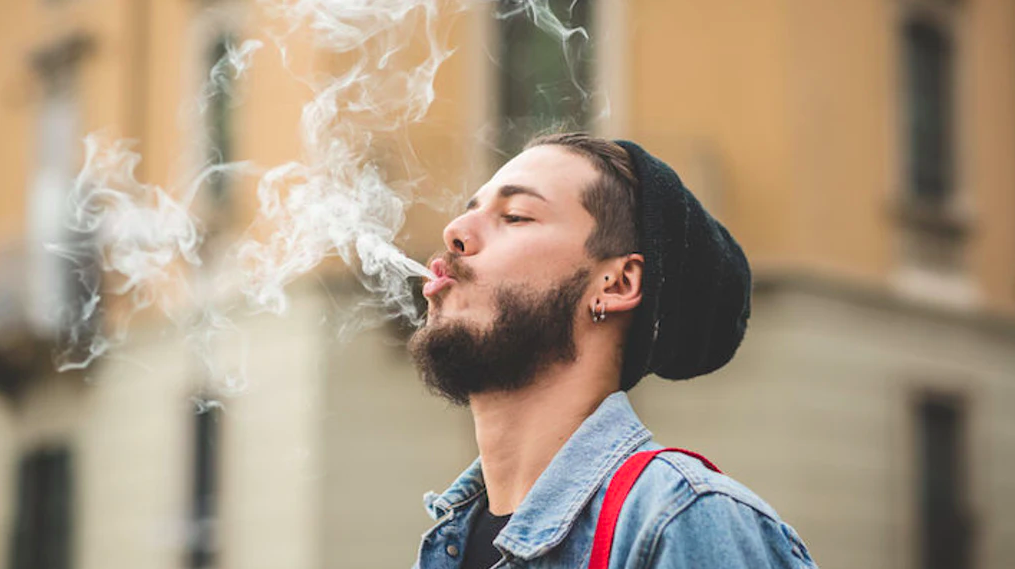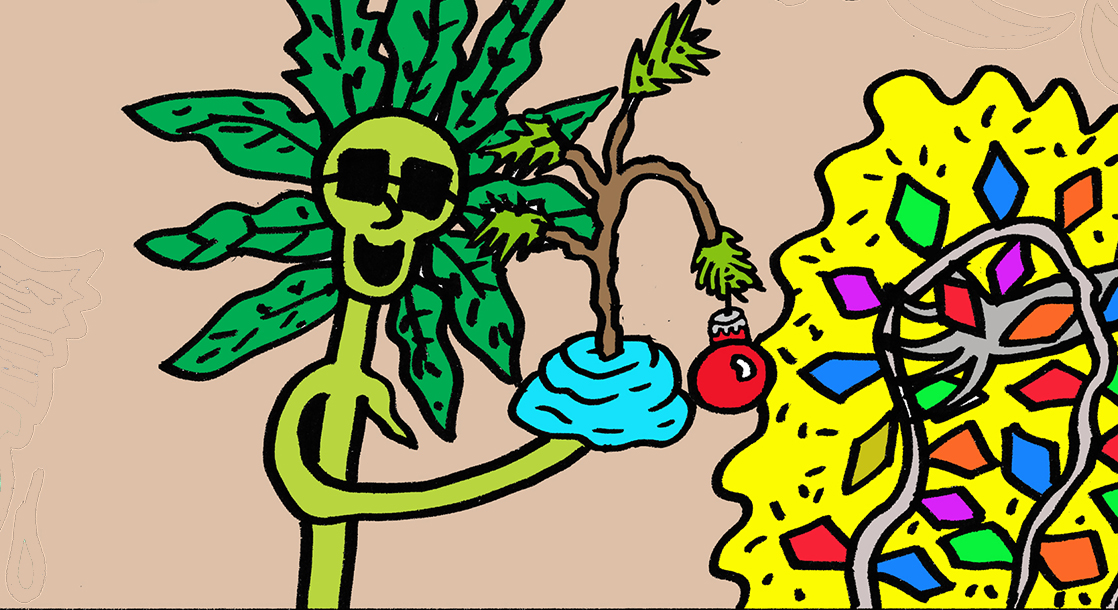Image via
Researchers from Imperial College London have discovered (but really, confirmed) that cannabis can increase the intense, mystical experience of tripping on shrooms, LSD, or other psychedelics.
In a new observational study published in the journal Psychopharmacology, researchers set out to determine whether the simultaneous use of cannabis and psychedelics increased the subjective effects of the psychedelic experience. In the study, the authors note that while “classic psychedelics are currently being studied as novel treatments for a range of psychiatric disorders… research on how psychedelics interact with other psychoactive substances remains scarce.”
The research team studied 321 adults who were planning to take psilocybin, LSD, DMT, ayahuasca, or mescaline. Each subject was asked to complete two online surveys, scheduled one week before and one day after their trip. The surveys included 5 standard questionnaires used to assess mystical or challenging experiences, emotional breakthroughs, ego dissolution, and perceptual changes brought on by the psychedelic experience itself. Subjects were also asked whether they used cannabis during their trip, and if so, how much.
After analyzing the survey responses, the researchers found that participants who used weed and psychedelics together were more likely to report mystical experiences, ego dissolution, and visual alterations. Subjects who used higher doses of cannabis were even more likely to report these enhanced effects than those who used lower doses. The researchers found no relationship between cannabis and emotional breakthroughs, however.
In a unique twist, the researchers discovered that “cannabis use was also found to relate to challenging aspects of the psychedelic experience but not in a conventional linear way.” Individuals who took high doses of weed along with psychedelics were more likely to report challenging experiences, including feelings of grief, anxiety, or insanity. But subjects who used low doses of cannabis during their trip were actually less likely to report experiencing these challenging emotions than subjects who did not use pot at all.
Most research studies on psychedelics focus on one compound at a time to give researchers a better shot at understanding the specific effects of each individual drug. But some scientists are now investigating the simultaneous use of multiple drugs in order to identify whether these combinations could lead to additional risks or benefits. In one new study, researchers are exploring whether the combination of LSD and MDMA could treat PTSD or other trauma-related issues more effectively than MDMA alone.
“Given the high rates of cannabis use in concert with the use of psychedelic substances, the current research has important implications for harm reduction education but may, eventually, also have implications for therapeutic use, considering that some of the therapeutically desirable psychological effects associated with psychedelics may, in theory, be enhanced by concomitant cannabis use,” the present study concluded.
Some research suggests that specific chemical compounds naturally found in psychedelic plants and fungi can treat mental illness without even necessarily producing a psychedelic effect. Other studies disagree, however, suggesting that the psychedelic experience itself is a key component of the healing process. If the latter proves to be true, then using cannabis in conjunction with psychedelics could definitely help boost the therapeutic effects.











